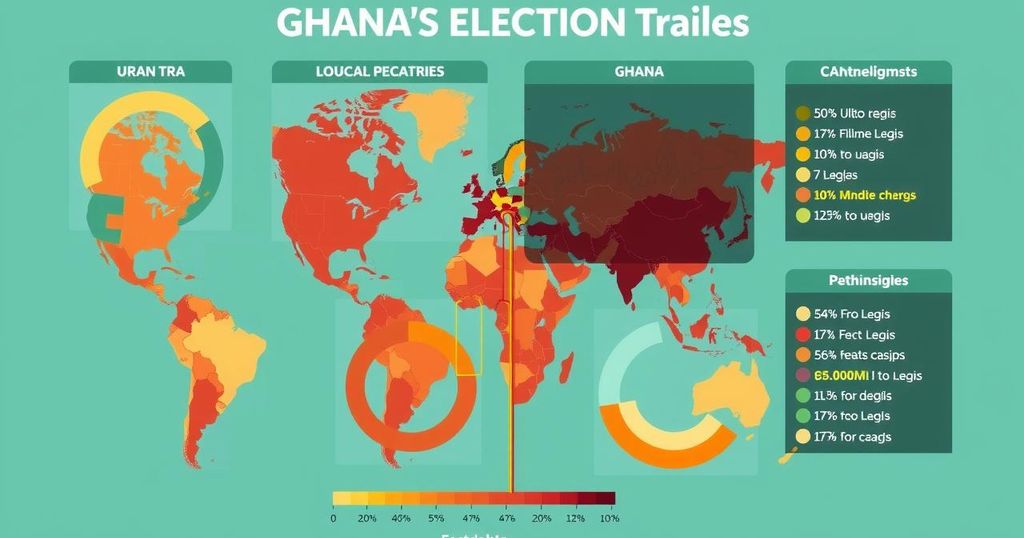Ghana’s Upcoming Election: Key Concerns of Voters in 2023
Ghana approaches its ninth general election, with significant voter concerns around rampant inflation, high unemployment, and increasing national debt. As the NPP aims for a third consecutive term, economic issues, especially those affecting young voters, are at the forefront. The election, set for December 7, highlights the pivotal role of the economy in influencing Ghanaians’ voting behavior.
Ghana is gearing up for its ninth general election since the country’s return to multiparty politics in 1992. Throughout this period, the National Democratic Congress (NDC) and the New Patriotic Party (NPP) have alternately held the presidency, each for 16 years. In this election cycle, the NPP seeks to secure an unprecedented third consecutive term. Voter concerns are significantly shaped by recent economic challenges, including unprecedented inflation, which peaked at 54.1% in December 2022, and has impacted the cost of key staples like eggs and tomatoes, which have more than doubled in price over the last year. The rising cost of living has resulted in increased poverty levels, with many Ghanaians finding it increasingly difficult to make ends meet.
The economic backdrop has been further complicated by Ghana’s debt crisis; the nation defaulted on its debt repayments in 2022, leading to prolonged negotiations with international lenders. The government sought assistance from the International Monetary Fund (IMF), acknowledging the nation faces a financial crisis while attributing some blame to external factors. Yet, critics contend that poor economic management has contributed significantly to the current situation. Unemployment has increased dramatically over the last two decades, from 5% to 14%, disproportionately affecting Ghana’s youth population, with almost 30% of individuals aged 15 to 24 being unemployed.
Natural resources, particularly gold, play a vital economic role, generating significant revenue for the country. However, the adverse environmental impact of mining practices has sparked considerable debate. Ghana, also a key player in oil and cocoa production, has seen its wealth grow over the last thirty years, highlighted by a marked reduction in extreme poverty. Despite an overall increase in living standards since 2005, the benefits have not been evenly distributed, with the average income stagnating since 2017.
The political landscape is shaped by Ghana’s history of peaceful elections, where results often reflect a closely contested environment, demonstrating the country’s commitment to democratic principles and stability. Voter sentiment tends to favor immediate improvements over long-term economic planning. As the election date approaches, the outcome is anticipated shortly after the voting, scheduled for December 7.
For further updates, visit BBCAfrica.com or follow on social media platforms.
Ghana has a robust democratic history, having experienced a series of peaceful elections since 1992. With a political environment dominated by two primary parties—NDC and NPP—voters face critical issues, particularly concerning the economy. The recent wave of inflation, rising debt, and youth unemployment all play important roles in shaping the electorate’s views ahead of the upcoming general election. Understanding these factors provides insight into the pressing concerns of Ghanaians as they head to the polls on December 7.
In conclusion, Ghana’s electoral landscape is heavily influenced by significant economic challenges, including inflation, rising unemployment, and national debt. With the NPP aiming for a historic third term, voter priorities are sharply focused on immediate economic improvements rather than long-term strategies. The upcoming election marks a pivotal moment for the nation, potentially altering its democratic trajectory and economic future. As the election day approaches, the anticipation of voter turnout and sentiment grows, reflecting the crucial importance of the current socio-economic conditions to the electorate.
Original Source: www.bbc.co.uk




Post Comment